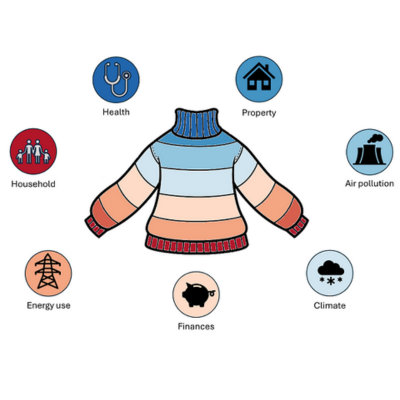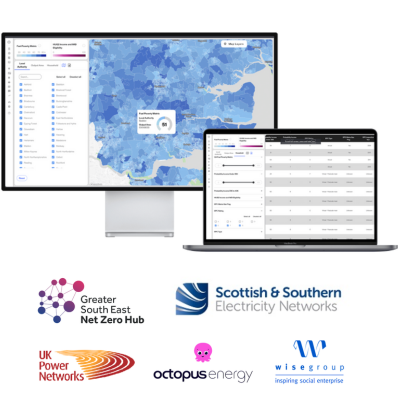Data collection and cross-sector collaboration are key to fighting Transport poverty in the UK, according to insights from the Transport and Health Conference 2024.

Last week, UrbanTide took part in the annual Transport + Health Conference 2024 in Bristol.
As professionals across the transport and healthcare sectors gathered together, one key theme was clear: Data and integrated systems are crucial for developing targeted solutions to transport poverty.
Transport costs push more than 5 million people (8% of the UK population) into poverty. Transport poverty is where there's a lack of transport options that are available, reliable, affordable, accessible or safe to allow people to meet their daily needs and achieve a reasonable quality of life.
The conference emphasised that addressing transport and health challenges requires bold, systematic solutions that can only be achieved through cross-sector collaboration and the open sharing of data.
Data research with NHS Scotland and SEStran
In partnership with SEStran and NHS Scotland Assure, UrbanTide recently facilitated a stakeholder and community engagement project. Our data analysis uncovered:
- People are not even booking healthcare appointments because they have issues getting there
- There’s a reliance on home delivery for prescriptions because people don’t feel they can get to pharmacies to pick them up
- Complex needs patients have the hardest time accessing services, mainly relying on family and friends to escort them to appointments.
How to tackle transport poverty with data
At the 'Data quality and impact' morning session, some key data-related objectives were highlighted that will allow organisations to move forward in tacking transport poverty effectively:
- Quantify the problem so that stakeholders are able to target adequate solutions
- Establish standardised data collection protocols across sectors
- Build data collection and evaluation frameworks into initial project planning
- Strengthen partnerships and data-sharing between the NHS and transport providers
- Focus on preventative measures rather than reactive solutions
- Emphasis on whole-system understanding and approaches.
Data challenges holding back progress
Conference participants also identified several key data-related obstacles that are currently holding back progress to tackling transport poverty.
They are:
- Absence of standardised approaches to quantifying transport poverty - a key barrier identified in Public Health Scotland's Transport Poverty research report.
- Lack of systematic data capture across regions of the UK
- Insufficient baseline data collection
- Difficulty measuring and tracking long-term impacts.
By integrating data across systems and sectors (transport, health, energy), this will allow us to transform connectivity, improve access to healthcare and facilitate healthier travel options such as walking, wheeling and cycling.
Introducing: uMove Rural
While transport poverty affects 8% of the UK population, this number increases to 12% for rural populations.
Patients missing appointments costs the NHS £1 billion every year. Public transport is essential to reducing that number: Studies have shown that public transport makes healthcare 3x more accessible.
UrbanTide have been working on an innovative data insights tool that will quantify the problem transport authorities and the NHS face in providing access to healthcare, specifically in a rural setting.
More details on uMove Rural to follow - subscribe the the UrbanTide monthly newsletter below to be the first to know.






